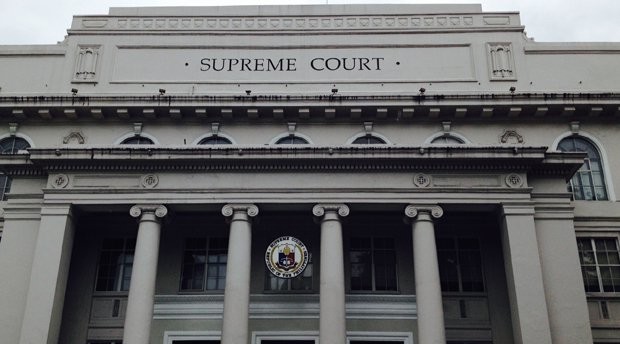The Supreme Court has cleared three of the four judges it said were tarred “prematurely and without evidence” as drug protectors by President Duterte,in a stunning repudiation of his claim.
Supreme Court spokesperson Theodore Te said that a fact-finding body led by retired Associate Justice Roberto Abad found no evidence against Judges Exequiel Dagala (of the Municipal Trial Court in Dapa-Socorro on Siargao Island, Surigao province); Adriano Savillo, (Regional Trial Court, Branch 30, Iloilo City); and Domingo Casiple (RTC, Branch 7, Kalibo, Aklan province) “of any involvement in the use, trade or proliferation of illegal drugs.”
The investigation on the fourth judge shamed by President Duterte, Baguio City, Benguet RTC Judge Antonio Reyes, remained pending as the Philippine Drug Enforcement Agency (PDEA) and Philippine National Police have yet to submit their reports.
Te said the high court took this “extraordinary step” of investigating the judges because of the “grave public impact of the President’s comment.
“The court found that no prima facie case has been established against the said judges. It was constrained to terminate the investigation considering that despite repeated pleas, the PDEA insisted that no witness is willing to come forward and that it has exhausted the documentary evidence it can submit,” Te said.
Not fully supported
Te however stressed that the judges’ lives had been endangered and their reputations damaged by the President’s “unwarranted” accusations that were based on long-decided cases and dubious witnesses.
But the chief presidential legal counsel, Salvador Panelo, stood firm on the accusation.
“The President has access to intelligence data. The Supreme Court does not have that capability,” Panelo said. He did not elaborate.
Associate Justice Marvic Leonen said the high court treated the probe as sui generis or unique with the President’s speech serving as information, and the PDEA and PNP not required to present proof as complainants.
He said the judges could have opted to file a petition for habeas data, which may be invoked by persons faced with invasion of privacy.
Leonen said that the President’s accusation was “not fully supported by evidence that were professionally validated and which could be presented in a court of law.”
All that the President achieved, according to Leonen, was “to shame the judges” and “dangerously contribute” to his misperception that the courts were incompetent.
Te said the high court asked various organizations of judges to come up with measures to protect the lives and reputation of judges and court personnel as well as to ensure their independence.
In a letter to the President, Chief Justice Maria Lourdes Sereno had also protested the accusations against the judges.
“With all due respect, Mr. President, we were caught unprepared by the announcement. It would matter greatly to our sense of constitutional order,
if we were given the chance
to administer the appropriate preventive measures without the complications of a premature public announcement,” Sereno said.
In a speech in Davao City in August, the President named eight judges as part of his “drug matrix” that included influential people allegedly protecting drug lords.
But other judges he named were either dead, such as Judge Roberto Navidad of RTC Branch 32 who was killed in 2008, or nonexistent, such as a “Judge Mopas of Dasmariñas, Cavite,” “Judge Rene Gonzales” and “Judge Dapa of Siargao.”
